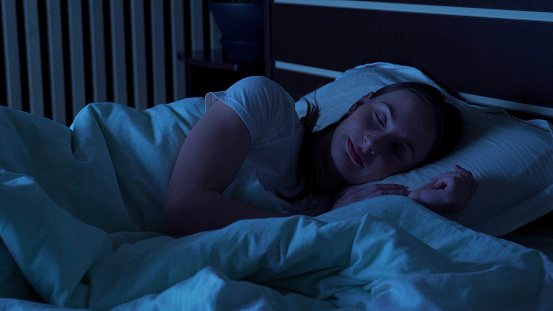The link between sleep and general physical well-being is well-established. Sleep allows both the body and the brain to heal during the night. When you wake up in the morning, you’ll feel rejuvenated and alert, thanks to a good night’s sleep.
Sleep deprivation not only makes you weary, but it also puts you at risk for a variety of diseases and health issues. Obesity, heart disease, high blood pressure and stroke are among them. Sleep deprivation might also jeopardize your physical well-being. According to studies, up to 19 percent of adults in the United States do not get enough sleep regularly.
How Can Physical Activity Assist You in Getting a Better Night’s Sleep?
Sleep is essential for your mental and physical health. Various processes during sleep aid in the promotion of healthy brain activity and the maintenance of good overall health. Sleep is also essential for appropriate growth and development in children and teenagers.
A lack of sleep can hamper these body functions. The inability to acquire enough good-quality sleep is called “sleep deficit.” This could be due to sleep deprivation or just not getting enough sleep, or it could be due to another underlying cause, such as a sleep disorder or a misaligned circadian cycle. When you don’t get enough good sleep, your body has less time to heal during the night. This can also weaken your body’s immune system, making it more vulnerable to infections and medical issues.
The following are some of the negative effects of sleep loss on physical health:
Obesity: Sleep deprivation has been linked to an increased risk of obesity in studies. During sleep, your body creates and controls a variety of hormones. Ghrelin, which makes you hungry, and leptin, which makes you feel full, are two. Lack of sleep causes your ghrelin levels to rise while your leptin levels fall, making you more likely to feel ravenous and overeat.
Heart Problems: When you sleep, your blood pressure drops. As a result, a lack of sleep can lead to a rise in daily average blood pressure, raising your risk of heart disease and stroke. Inadequate sleep has also been associated with the hardening of coronary arteries, a major predictor of coronary heart disease.
Insulin management: Insulin is a natural hormone that regulates blood sugar (glucose). Sleep deprivation can alter how your body reacts to insulin, causing your blood glucose level to rise, putting you at risk for Type 2 diabetes. Reduced sleep or poor sleep quality can also impact glucose management in diabetes.
Immuno-health: The number of particular T-cells, cytokines, and other essential components of your immune system peaks during sleep. Sleep deprivation can alter the immune system’s response to viruses and other illnesses. Long-term sleep deprivation can also cause low-level inflammation throughout the body, at the root of many chronic medical illnesses.
Cognitive Performance: Getting a good night’s sleep can help you focus, be more creative, and master new abilities. People who do not get enough sleep have difficulty paying attention and are more prone to make mistakes at work or school.
Memory Consolidation: Sleep is necessary for memory consolidation. Your brain begins organizing and consolidating memories during the third non-rapid eye movement stage of your sleep cycle, often known as slow-wave sleep. Following that, the fast eye movement stage may aid in the consolidation of these memories. As a result, not getting enough sleep can impair your capacity to recall crucial information.
Mood: People who don’t get enough sleep may struggle to manage their emotions, make smart decisions, and cope with various facets of daily life. Sleep deprivation can also cause mental health problems, including depression, and raise the risk of suicide.
The amount of sleep you require fluctuates as you get older. Teenagers can normally get away with eight to ten hours of sleep per night; however, newborns and infants require up to 15 to 17 hours. Adults between 18 and 64 require seven to nine hours of sleep per night. After 65, this time decreases to seven or eight hours.
Sleep Hygiene and Its Importance
The phrase “sleep hygiene” refers to the habits and behaviors that affect the quality and length of sleep. It can include things like your bedtime and wake-up rituals, as well as your food, physical activity, and other everyday activities.
The following are essential elements of a good night’s sleep:
Consistent Sleep Schedule: On weekdays, weekends, and when traveling, you should try to go to bed and wake up at the same time every day. Many people find that sticking to a regular evening routine helps them sleep on time.
Prioritizing Sleep: Getting enough sleep while juggling family life, job responsibilities, and socializing. However, you may need to skip these activities occasionally to obtain proper rest.
Napping responsibly throughout the day might significantly reduce the amount of sleep you receive at night. Naps should be taken only in the morning and early afternoon. You should also avoid resting for more than 20 minutes since you will feel tired and distracted when you wake up.
If you’ve been suffering from sleep deprivation for a long time, you should see your doctor or another qualified medical practitioner. Physicians can give vital information on sleep health and hygiene and perform tests to determine whether or not you have a sleep disturbance. Let us know in the comments if you suffer from a lack of sleep…





